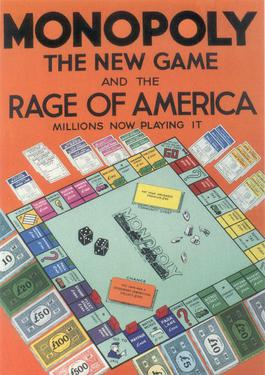Seventy-five years ago today Parker Brothers released its classic board game Monopoly. Since its release, 275 million of the games have been sold. The story of its origins is a fascinating tale of innovation and government granted monopoly via the patent. Parker Brothers bought the rights the game from Charles Darrow.
The roots of the game, however, come out of the economics of Henry George, who argued that land is a free gift to all, and, hence. "We must make land common property." George advocated a single tax on land rents with the revenues either funding the state or a social pension. A socialist subscriber to Georgist economics, Lizzy Maggie, developed The Landlords Game, which was a Monopoly proto-type. Maggie's goal was to use the board game to teach people how land rents made landlords rich and their tenants poor. You can read Rothbard's dismantling of Georgist economics in his essays, "The Single Tax: Economic and Moral Implications," and "A Reply to Georgist Criticisms."
One of drawbacks of the game is the impression that free market competition naturally leads to one super-successful capitalist attaining a monopoly in industry. An excellent critique of the world-view communicated by Monopoly written by Ben Powell and David Skarbek can be read here. As they note, Murray Rothbard pointed out "A monopoly price and a monopoly by any usable definition arise only through the coercive grant of exclusive privilege by the government."

No comments:
Post a Comment